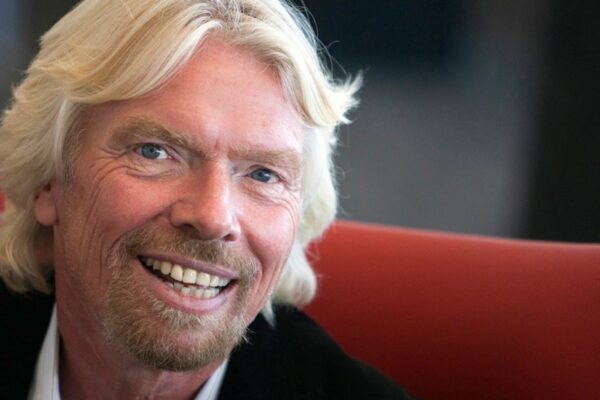After the interview with Don Daszkowski, the About.com Guide to Franchises, I now had the chance to interview Andrew Markou, an entrepreneur that also deals with selling, buying, or starting a business. Here is what I found out:
I had a look at your portfolio, and I could see a number of business portals like http://www.businessesforsale.com , http://global.franchisesales.com/ www.businesswings.co.uk or http://www.businessopportunities.com I can feel that’s a growing business nowadays, but how did all start?
Andrew: Funnily enough, the business started on paper in the early 1990s, centered on a publication called Businesses & Premises for Sale. It was the main reason why we were able to register great domain names as far back as 1994 when the websites were just supplementary to the offline magazine. The penny dropped quite early on that the days of paper as a means of publishing classifieds and suchlike were numbered, so we then decided to concentrate on developing websites.
What’s the most difficult part when you are running an online publishing company?
Andrew: Things never remain the same for long online, so you need to keep an ear to the ground. There are demands on the business to constantly innovate as users’ expectations and web standards constantly evolve. At times it feels more than you’re being led rather than leading. But there’s always the lurking danger that in attempting to progress and expand into exciting new areas, you can neglect the core functions that make the business a success. A transactional website like ours has lots of processes – billing and payment, content management, etc.) – so for every line of code written for the users’ experience on the front end, there’s a line of code on the back end to manage and run the thing – very much a case of still waters running quite deep.
There are many sites, blogs, and forums nowadays because the entry barrier is so low, so what’s the key to success in running some proper business portals?
Andrew: Apart from constantly seeking ways to improve the user experience, SEO and commanding a good position in Google’s ranking will always help you stand apart – I believe this is effectively the major barrier to gaining a decent web presence. Although users are generally quite fickle and have a utilitarian approach to the web, seeking information most quickly and simply possible, I still believe there’s good reason to develop a brand, something recognised and trusted. We’ve worked hard to establish this over the last 12 years, notably with BusinessesForSale.com.
Businessforsale.com really caught my eye. How does it work?
Andrew: It’s an online classifieds service for sellers of businesses to help find willing buyers. We predominantly provide a channel to market for business brokers, intermediaries who oversee businesses’ sale, and private business sellers.
How does selling a business online differ from more traditional methods?
Andrew: It is much quicker and easier for prospective buyers to find the right business for them. They can search filter searches by sector, location, price, turnover, profit, and a host of other variables, and within seconds generate a shortlist of businesses that fit their precise criteria. It also gives you access to a much bigger market. Just like selling goods on eBay gives you access to a market of millions of buyers, compared to about 100 people at a car boot sale, many more people are likely to find your ad online than if you just sold it in a small-circulation magazine (there are no high-circulation ones left). Advertising classifieds in print is impractical, outmoded, and in terminal decline.
What was the biggest or most notable business sold through the portal?
Andrew: Because we’re global, we’re constantly surprised at the sheer diversity of businesses on the market at any given time. An eight-figure holiday resort near the red sea in Egypt was quite notable, though. We’ve also had football clubs on there.
By the way, you started your business with your brother? Most “experts,” say it’s not a good idea to start a business with your family. How does it work for you?
Andrew: We are lucky in that we operate in two distinct parts of the business; Marcus, my brother, is mostly involved in sales and marketing activities, whereas I’m focused more on technology. Although there is this demarcation, however, we’re fortunate in that we share a common vision of where the business is headed.
Andrew, I know from my own experience that keeping the balance between the business and personal life is important. Running an online publishing house seems like a 24h job. So what’s the key here?
Andrew: In the early start-up days, it literally was a 24-hour job. But as the business expanded, the delegation came into play. At some point, you have to start letting go of certain levers and have faith and trust in your employees. Hiring the right people, of course, is imperative.
Do you remember your first employee?
Andrew: Yes, Karen Thai, a superb web designer.
Getting back to the portals, you have one that deals with franchises. What can you tell me about this?
Andrew: The idea of helping franchise networks recruit new franchisees came from realizing that traffic on BusinessesForSale.com would also be interested in buying franchises. We knew we could quickly cross-refer our users between FranchiseSales.com and BusinessesForSale.com.
Do people still look for franchises or businesses to buy during the recent economic crisis?
Andrew: I think it becomes a buyer’s market during a crisis such as we’ve been experiencing recently. It’s tough to raise finance right now, so buyers with hard cash in their account are in a very strong negotiating position with sellers who have little option but to sell. Similarly, owners of good businesses that don’t need to sell are generally sitting on their hands before the market picks up, so a better value can be realised.
In my opinion, one of the keys to success in a business is to find something and do it in a better way. What was the key to success in your case?
Andrew: We were very early adopters of the internet and didn’t really have any competition at the outset to be inspired by – certainly not in the UK, our core, home market – but we nevertheless didn’t rest on our laurels. It’s a globally competitive landscape, so we need to assess the competition and constantly innovating constantly.
I’ve noticed that you also have a French version for the franchise portal and blog. Are the portals mostly targeted to the European market?
Andrew: FranchiseAVendre.fr is the first truly foreign language site we’ve launched as an online publishing company. We realised that continental Europe is further behind the US and, to an extent, the UK when it comes to using the internet to recruit and advertise for new franchisees. We do have a significant presence in the US and Australia nonetheless.
On the http://blog.businessopportunities.com/ blog, one article, in particular, caught my eye, ‘Five Recession-Proof Businesses For Sale. Which are these?
Andrew: We’ve realised that ‘recession-proof business’ is a term with a huge volume of Google searches as people search for low-risk opportunities at a time of significant economic uncertainty. Therefore we’ve had a bit of an editorial push on articles surrounding the subject. There’s much disagreement about what exactly constitutes a recession-proof business. Still, examples we gave in that particular article were newsagents, convenience stores, maintenance businesses, bargain stores, and fast-food franchises.
For people that got laid off, what would be the best thing to do now, in your opinion? Look for another job? Buy a small business? Or maybe a franchise?
Andrew: Obviously, this depends on someone’s particular personality and skills. Some people relish the freedom of starting their own business, having complete creative control over how the business develops. Others still want the autonomy of being their own boss but want the extra security that buying a franchise brings. Buying a non-franchised business kind of falls between the two, as you have complete control over the acquisition, but – so long as you buy a quality one – the business is already established with a track record of making money.
What is your advice for people that start a business during the recession? How should they run their business?
Andrew: Businesses started in recessions can be perfectly placed to ride the wave of the upswing when it inevitably arrives. Start-ups in recessions can enjoy the added sense of being battle-tested as recessions do focus the minds on being cost-conscious.
Andrew, what’s next in line for you?
Andrew: More of the same, for now. So much more value can be generated from our existing markets through the delivery of further services.




